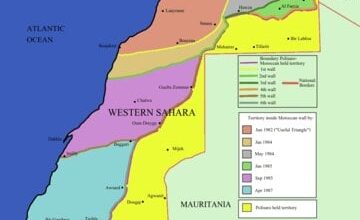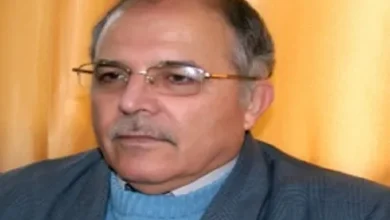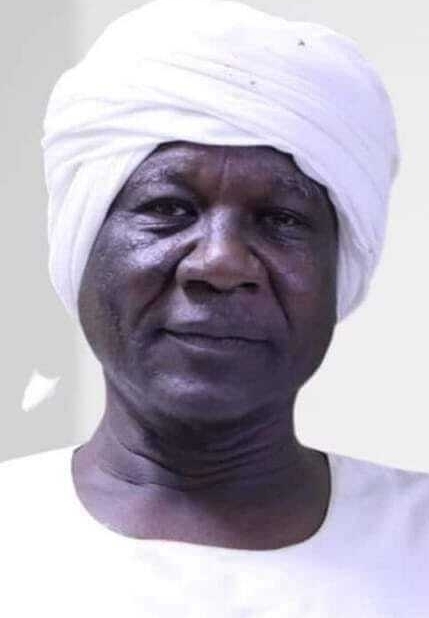
Ibrahim Ebeid: MY ROOTS ARE DEEP IN PALESTINE
Chapter 2
Part II
EBEID ABDUL MASSIH EL-FARR AND HIS DESCENDANTS
His Sons, Ibrahim, and Khalil
The Story of Khalil
Khalil was the youngest. Like his brother Ibrahim, he tended the family’s sheep and other cattle, tilled the land and took care of the olive orchards and vineyards. Once he went to water his animals in Ein Flifleh, a natural spring nearby. There was a full moon and it was eerily quiet with the exception of the noise of his animals and the breeze tickling the branches of the trees. It was a weird night. He looked in the pool where the animals drank and saw a cross-like sign inside the water, or, at least, he imagined so. Several times, he tried to grab it, but in vain. Every time he tried to pick it up the cross disappeared. The last time he tried, a rassad, a ghost, that guards the water source at night, jumped into the water and took the cross away.
Khalil panicked and was terrified. After this experience, he became emotionally disturbed and did not last long. He was found dead on their land called, al-Saqi, a few years later.. It was bitter cold, and his body was coated with a blanket of snow under a blackberry bush. I heard that story many times from the elders of the family and the town. The villagers believed it and were afraid to approach the spring at night, especially alone. Even in my childhood, I was afraid to go to the area alone. I imagined weird and strange creatures coming to grab me.
When I was about four years old, I met his wife Hilweh Abed (his maternal cousin), in Uncle Jiryes Musallam’s house. He introduced me to her as her grand nephew, I remember that as a dream, she was very old and sick. My uncle was taking care of her and she died shortly afterwards.
Ibrahim
Ibrahim was born about 1852. He was married to Sarah Ziadeh. He also worked on the land. His son, my grandfather, Jiryes, was born in 1875. In addition to Jiryes, he had two daughters, Katrina and Miriam

Grandfather Jiryes Ebeid
Katrina was born in 1877 and married to Daoud Mizied. According to my mother, she died at the beginning of 1935, six months before I was born. All her children ended up in the US. Miriam was born in 1880. She became a nun and was known as Sister Mary Teresa. I remember her very well. She died in 1953 in Jerusalem. We learned about her death a few days later. She was buried in Mamillah Rosary Convent in Jerusalem. We were not able to attend her funeral because of “Israeli occupation.”
Ibrahim, the son of Ebeid, died at the age of 30, in 1882. His children were little, and their grandfather Ebeid and his daughters Ni’meh and Hanneh took care of them. No doubt the death of Ebeid’s children at a young age made him sad and worried because his grandson, Jiryes, was a child. He was very eager to see his grandson grow under his protection and get married and have children.
Sarah, the mother of my grandfather Jiryes, the wife of Ibrahim, was a young widow. She married Salih Khalil Nassir, from Birzeit, and she had two daughters, Afifeh, and Sibat. I knew Aunt Sibat very well; we were very close to her.
When Jiryes was 14 years old, his grandfather was worried that he might not be able to see children in the family, so he fetched a wife for the grandson and Grandpa Jiryes was married to Misa’deh Saadeh, the sister of Abdallah Saadeh, the husband of his aunt Ni’meh. A few days before his death, Ebeid was told a child was born named after him. He was delighted and happy but it was a lie.
Grandfather Jiryes had several children from his first marriage. The first child; Ebeid did not live long; he died few months after birth. Then, Ibrahim the first also died as a child. His other children were Iskandar 1894-1967, Ibrahim the second 1898-1914, Jalileh 1903-1970, Naoum 1905 -1978, Louisa 1907-1986, and Adlah 1910-1943.
World War I: Grandpa and my Father
During World War I, my grandmother was dead and my dad was a child , his older brother Irahim, died at the age of 16, and Iskander the oldest was in the United States.
Naoum, my father, was the only man in the family left in Birzeit to help his father to raise and protect the family. By the end of the war, Birzeit was brutally attacked by the British forces because the Turkish soldiers were in the town. The people were in disarray, many were killed or wounded, houses were destroyed and the town suffered gravely. A bomb hit my grandfather’s house and Fatimah, the gypsy woman who was taking shelter in their house, was killed. Louisa, my aunt, lost her left palm from shrapnel. They thought she was dead when they found her under the wooden door unconscious and bleeding with some body parts of the ripped gypsy woman scattered around. It was a horrible moment. Grandfather was not in the house; probably he was out in the field. The majority of the town left.
Ramallah was occupied by the British forces and was relatively safer for the people from Birzeit to go to, so many families went there. My father took his sisters and left to a valley in Birzeit called Khallet el-Sarar where we had an olive orchard, and then they ended up in Jifnah, a neighboring town near Birzeit. His sister, Louisa, was suffering from the pain of her blown-up hand. It was rotten and falling, but luckily they were found by their uncle, Abdallah Saadeh, who took them under his wing. He cut her hanging hand with his shibrieh, a decorated knife that men carry in a sheath attached to their belt, and treated her with crushed sage.
My grandfather panicked because he thought he lost his children. He relentlessly looked for them and finally, after three days, he found them with their maternal uncle.
After the war ended, Grandfather and his children returned to Birzeit to find their house damaged. The olive oil from the well was running in the street. What little furniture they had was stolen as well as their animals. Nothing was left. My grandfather had to start all over and rebuild. A few years later, he married his second wife, Katrina Salem Kaileh. They had three sons, Youssef, Saleem and Hanna. Hanna suffered sunstroke and died at the age of six months.
Besides tilling the land, my grandfather was a skilled carpenter and a builder. In winter time, he converted his house to a carpentry shop making tools for the peasants. Uncle Youssef learned the trade and became a skilled carpenter as well.
The family got larger; my father got married, life became harder for him to live in Birzeit and in the same house with his father and the rest of the family. He felt that it was time for him to leave and start a life of his own. My grandfather was not happy with the decision taken by my father ,but he had to realize that it was the right one. My father moved to Jaffa. Later on, Uncle Youssef had to take the place of my father to help his father on the land. When my grandfather died in 1946, my uncle, Youssef, stayed in the house where all his children were born. He worked very hard on the land and the burden was upon him. He was born in 1919 and died in 1989
The luckiest one was Uncle Saleem, the youngest. He was fortunate enough to go to high school in Jerusalem. It was a great achievement in those days, in the 1930s. He worked in many places in Palestine. At times, he was the head of the post office in Jericho, then a teacher in the Catholic schools in Palestine run by the Latin Patriarchate of Jerusalem. Finally, he settled in Nazareth and the family was separated because of the occupation of Palestine by the Zionist Jews in 1948, and the birth of the Zionist entity in Palestine.
Uncle Saleem moved back to Birzeit after Birzeit fell into Zionist hands in 1967. He built a house and died in 1989, six months after his brother Youssef. His children and descendants live in Nazareth and Birzeit Uncle Youssef’s descendants are in the United States, Birzeit and
Amman.

cle Iskander Birzeit Naoum my father Uncle Saleem first from left
1962 with Cousin Katerina

Aunt Louisa Aunt Adlah Youssef,wife and some of his children circa 1950





